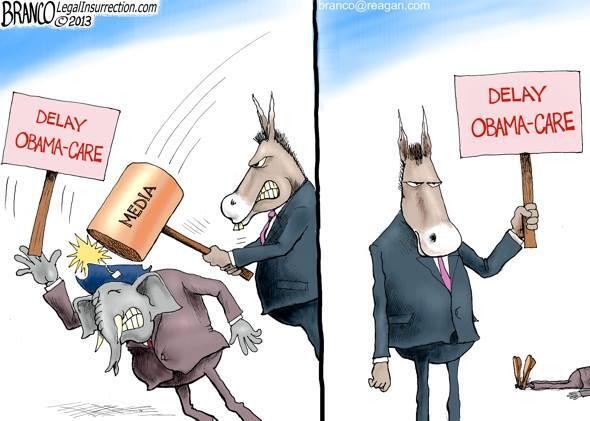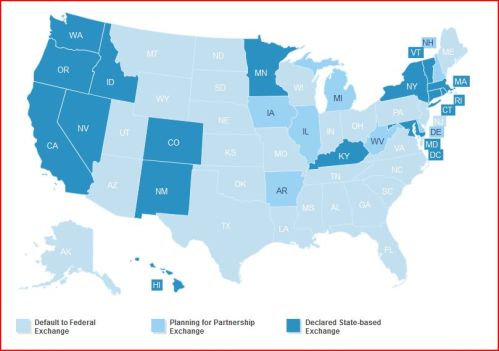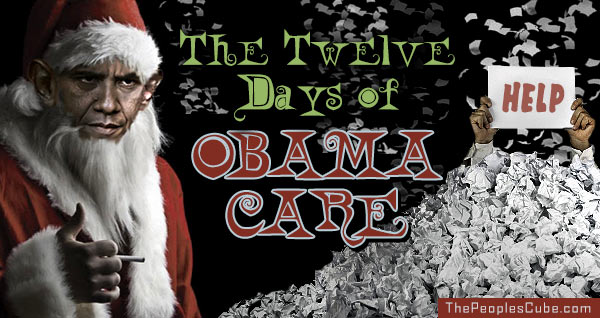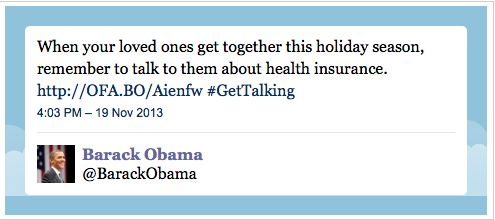WAPO: Health and Human Services Secretary Kathleen Sebelius testified before the Senate Finance Committee on Wednesday. The moment that made headlines was when Sen. Max Baucus, the key author of the health-care law, fretted that the rollout would be “a huge train wreck.”
We’ll get to that in a minute. But the entire testimony is worth watching as a particularly clear — and occasionally amusing — look at the dynamics surrounding the health-care law.

Health & Human Services Secretary Kathleen Sebelius.
(Jeff Martin/For The Washington Post)
The testimony begins with Baucus leaving the room to take a phone call. So Sen. Orrin Hatch, the ranking Republican on the committee, gets the first question.
Secretary Sebelius, I am curious as to how your department is funding overall efforts under the health law now that much of the initial funding has been depleted. A quick review of the HHS budget in brief seems to suggest that you are diverting funds from other areas of the department to put toward implementation. Some estimates estimate as much as a half billion dollars might be moved from other portions of the budget.
Would you describe the authority under which you believe you have the ability to conduct such transfers and whether or not you believe the Congress should be notified when these transfers occur?
Let me translate. Republicans have repeatedly refused to appropriate the money required to implement the Affordable Care Act. So, as a stopgap, Sebelius has moved money around from elsewhere in her department to try and fund the effort. Now Hatch is attacking whether that’s even legal to do. Here’s Sebelius:
Senator, we did a request additional funding with the continuing resolution in 2013 and were not given additional resources by the United States Congress, although we have the duty to implement the law. So I have, for 2013, used both my transfer authority, which is statutorily in our budget, as well as the nonrecurring expense fund for one-time I.T. costs and a portion of funding for the prevention fund to use for outreach and education.
You heard Chairman Baucus describe the level of concern and questions in states around the country, and we want to make sure that Americans fully understand the benefits that are coming their way and the decisions that they can make. We have requested in the budget that’s before you, in the 2014 budget, an additional $1.5 billion to fully implement the Affordable Care Act.
Hatch proceeds to drop this line of questioning entirely, moving on to a question about Medicaid.
Insofar as the Republican Party has a strategy on Obamacare, it’s goes like this: The law needs to be implemented. The GOP can try and keep the implementation from being done effectively, in part by refusing to authorize the needed funds. Then they can capitalize on the problems they create to weaken the law, or at least weaken Democrats up for reelection in 2014.
In other words, step one: Create problems for Obamacare. Step two: Blame Obamacare for the problems. Step 3: Political profit!
It’s also key context to understanding Sebelius’s now-famous exchange with Baucus. His question is about outreach, which of course costs money:
BAUCUS: When I am home small businesses have no idea what to do, what to expect. They don’t know what affordability rules are; they don’t know when penalties may apply. They just don’t know. I was talking to one CPA — you know, he’s not histrionic, he’s just being straight with me. He says, “Max, I just got to tell you that, you know, my — my — my clients, small business people are just throwing their hands up, and I don’t know what to tell them.” So that’s just from the small business perspective, let alone all the other issues that are going to be arising here.[...]
I just tell you, I just see a huge train wreck coming down. You and I have discussed this many times and I don’t see any results yet. What can you do to help all these people around the country going, “What in the world do I do and what — how do I know what to do?”
Sebelius’s answer is clear: For one thing, the real outreach is scheduled to begin a few months from now, when the bill is actually about to go into effect. But even given that fact, buying advertisements, hiring “navigators,” flying officials out for meetings — all of it costs money:
SEBELIUS: Well, Mr. Chairman, as — as you know, and — and we have had these discussions a number of times, we certainly take outreach and education very, very seriously. It’s one of the reasons that I think we were incredibly disappointed that our requests for additional outreach and education resources were not made available in the C.R. of 2013.
Having said that, we have engaged in efforts with the Small Business Administration, who is doing regular meetings around the country with our regional personnel. We have just released a request for proposal for on-the-ground navigators, individuals who come out of the faith community, out of the business community, out of the patient community, out of the hospital community, who will be available to answer questions, walk people through scenarios, hold seminars. We do regular seminars and Webinars, but we also understand that people have a lot of questions and are deploying as many resources as we can to answer those questions and get folks ready to engage in open enrollment on October 1st.
So here’s the chain of events: Republicans manage to deny Obamacare the anticipated funding required for smooth implementation. This makes implementation go less smoothly. Democrats begin to worry. Republicans use Democratic worries over implementation as a way to attack the law itself.
Neat trick, huh?
My read of the evidence is that the Affordable Care Act will have a much tougher first year than was initially anticipated but it won’t be the catastrophe that Republicans hope. The exceptions will be a handful of states where Republican governors have purposefully made it a catastrophe, but that’s likely to make the Republican governors look bad, particularly if the law is working smoothly in states that have tried to make it a success.
Conservative commentary on the law, with its continuous predictions of explosive premium hikes (and continuous omissions of the offsetting subsidies) and gleeful celebration anytime anything looks to be going wrong, is risking the mistake that the Obama administration made early on with the sequester. When the predictions of pain and chaos didn’t instantly come true, the whole narrative shifted in an instant.
Republicans have done a very good job prepping the country for the pain of Obamacare. They’ve not done a good job prepping the country for the people who will be helped by Obamacare.
But notice that Sebelius confidently predicts that the exchanges will be ready for open enrollment on Oct.1. There will be hitches, problems, and even scandals — but a lot of people are also going to get health insurance. Are the critics ready for that?
At this point, even some of the supporters aren’t ready for that. At the end of the hearing, Baucus jumps back in with a final question. Like many others, he’s heard that the administration is delaying the small-business exchanges — also known as the SHOP exchanges — for a full year. He wants answers. The answer, however, is that the SHOP exchanges will, in fact, be up and running this year:
BAUCUS: Yes. The real concern is the business perspective more than it is the consumers, individuals. I think I heard you say the shop — I forgot what it’s exactly called — will be delayed.
SEBELIUS: No, sir. That is not accurate. The shop will be up and running in every market in the country. For the states where the federal government will be operating the marketplace we are delaying one portion of the shop plan, which is that employers, if they choose to do so, could offer a wide variety of plans to his or her employees.
Year one for the federal marketplaces, employers will have a choice of coverage for their employees but that choice will then be passed along. Year two and beyond for the federal marketplaces, the employer, if he or she chooses, can then turn to the employees and say, “You can choose among, you know, 15 different plans.” And for state-based marketplaces that employee choice could be available from day one.
But we’ll have a two-step, so in 2014 all employers will have a choice. They’ll have a choice of plans to offer their employees, they just will not be able to say to that employee, should they choose to do so, “You can choose any plan in the shop market.”
BAUCUS: Okay.
Sarah Kliff has more on the SHOP exchanges here. But the underlying dynamics is worth noting: At this point, even Baucus is beginning to believe hype and rumors about how badly implementation is going.
The law could, in its first year, work substantially worse than was initially promised but still cover eight million people (rather than 15 million), hand out subsidies to tens of millions of grateful families, and provide a glitchy but broadly functional portal for buying health insurance. Meanwhile, most insured Americans, be they on employer-based coverage or in Medicare, likely won’t notice it at all.
That’s a world entirely consistent with Obamacare working “poorly,” and with some people seeing rate hikes or other unwelcome changes, but not particularly consistent with the Republican narrative on Obamacare destroying the American health-care system.
I doubt that Obamacare will have an easy or smooth first year. The law is big, complicated and unwieldy on its own terms, and Republican congressmen have done enough to withhold funding, and Republican governors and state legislatures enough to withhold cooperation, that implementation is sure to suffer. But Republicans may have set the bar so low that if this law even kind of works, it will be greeted with relief and surprise.
The year 2014 is going to be very interesting.
ObamaCare Survival Guide
Beating Obamacare: Your Handbook for the New Healthcare Law
Technorati Tags:
ObamaCare,
ObamaCare surprises,
defund ObamaCare,
surviving ObamaCare,
Kathleen Sebelius,
HHS,
Affordable Care Act,
taxes,
socialized medicine,
watch the other hand,
stand-up America,
wake-up America



















